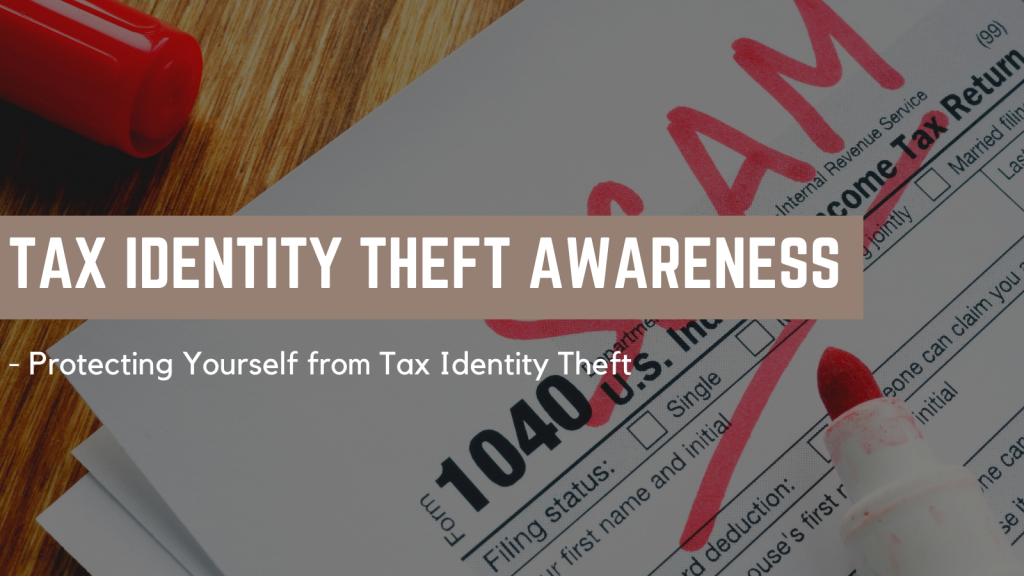
Tax Identity Theft Awareness – Protecting Yourself from Tax Identity Theft
Tax identity theft is when someone steals your Social Security Number, files a tax return with your number, and directs a refund to their own bank account. In other cases, this type of identity theft may involve a scam artist calling on the phone, pretending to be a rep from the Internal Revenue Service (IRS), and demanding payment over the phone. To protect yourself, keep these tips in mind.
1. Remember the IRS Doesn’t Make Surprise Phone Calls
The IRS does call taxpayers, but these calls are never a surprise. By the time an IRS agent calls you about a delinquent tax bill, you should have received numerous notices and demands for payment in the mail. If you get a call that you weren’t expecting, the caller is likely a scam artist. Hang up and contact the IRS directly. Never make a payment over the phone.
2. Be Aware of the Signs That Someone Has Filed a Return in Your Name
There are several red flags that can indicate someone has fraudulently filed a tax return in your name, and they include the following:
- A letter from the IRS about a tax return you know you didn’t file
- A tax transcript that you didn’t request
- A notice that an online account has been created in your name
- A notification that your online account has been accessed or disabled when you know you didn’t take those actions
- A rejection notice saying you already filed when you try to file your return electronically
- IRS records indicating that you received wages or income from an employer you didn’t work for
If you notice any of these red flags, you should also reach out to the IRS and consider freezing your credit report to ensure the scam artist doesn’t use your info to open any accounts or do any other damage.
3. File Your Tax Return Early
To prevent someone from filing a tax return with your Social Security Number, consider filing your tax return as soon as possible. Then, even if a scam artist gets ahold of your info, the IRS will reject the return they attempt to file.
4. Safeguard Your Social Security Number
Take steps to keep your Social Security Number as safe as possible. If you have documents with your number on them, shred them and dispose of them carefully. Also, make sure to have safe internet hygiene. In particular, never submit sensitive information such as tax returns, bank sign-in details, or similar data over public WiFi. Always make sure you’re on a secure password-protected network.
5. Check Your Credit Report Regularly
Ideally, you should check your credit report on a regular basis. This gives you the ability to ensure your credit score is moving in the right direction, but at the same time, you can also see if anyone has opened an account or made a credit inquiry. If that happens, you know your information has been compromised and you can take steps to rectify the issue quickly.
Important Disclosures
The opinions voiced in this material are for general information only and are not intended to provide specific advice or recommendations for any individual.
The information provided is not intended to be a substitute for specific individualized tax planning or legal advice. We suggest that you consult with a qualified tax or legal advisor.
LPL Tracking: 1-05080839
Sources
Content Provider: WriterAccess